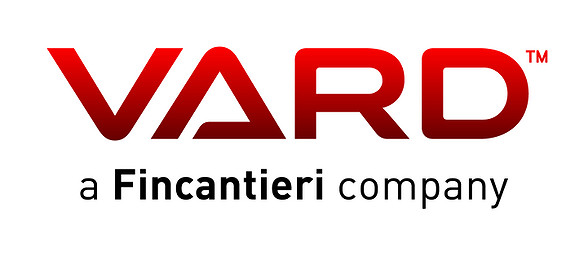
PhD candidate in Energy Sufficiency in Residential Architecture
- Arbeidsgiver
- NTNU - Norges teknisk-naturvitenskapelige universitet
- Stillingstittel
- PhD candidate in Energy Sufficiency in Residential Architecture
- Frist
- 16.05.2025
- Ansettelsesform
- Vikariat
Beskrivelse
NTNU is a broad-based university with a technical-scientific profile and a focus in professional education. The university is located in three cities with headquarters in Trondheim.
At NTNU, 9,000 employees and 43,000 students work to create knowledge for a better world.
You will find more information about working at NTNU and the application process here.
. Video: https://youtu.be/Xt-yHCN5QS0
About the position
The Department of Architecture and Technology has a vacancy for an interdisciplinary PhD funded by NTNU’s strategic research area on Energy – Focus area ‘The Transformation of Energy End Use’. Additional opportunities linked to this initiative can be found at https://www.ntnu.edu/energy/announcements.
The PhD position will focus on energy sufficiency in residential architecture. Within this, it will address the overall goal of transforming the energy end use to drastically reduce and transform the energy and power demand in buildings, through sufficiency in energy services and development and deployment of energy efficient solutions. The PhD will work with the interplay between architecture, psychology, and STS (Science and Technology Studies).
The PhD will address the following research question:
How can sufficiency in residential architecture contribute to energy savings that support the Paris climate goal while ensuring human wellbeing and fulfillment of social needs? (focus: Norway)
This entails the following sub-questions:
- How to design or transform residential buildings with respect to sufficiency, i.e. sufficient space, comfort and health (temperature, air/ventilation, light/daylight/view), material quality, and use/functionality?
- How does peoples’ perception of the quality of space influence their demand for the quantity of space / energy consumption?
- What does a sufficiency lifestyle imply for everyday practices on household and community (neighbourhood) levels?
- What is the potential of sufficiency in the residential sector to meet climate targets /stay within the planetary boundaries?
The PhD position will pursue the following overall objectives:
- Contribute to the definition and vision for sufficiency in residential architecture
- Design and evaluate sufficiency measures for new and existing residential buildings
- Advance the knowledge on the value of spatial quality versus area and volume
- Develop a strategy for residential architecture that supports a sufficiency lifestyle
You will report to the Head of Department.
Duties of the position
- Conducting background research on the status and potential of sufficiency measures in architecture in the Norwegian context.
- Collaboration with an interdisciplinary research team from the department of Architecture and Technology (IAT), the department of Interdisciplinary Studies of Culture (Science and Technology Studies, STS) and the department of Psychology.
- Developing an evaluation method for sufficiency measures in residential architecture
- Co-creating, testing and evaluating sufficiency measures with selected projects’ communities
Be prepared for changes to your work duties after employment.
Required selection criteria
The PhD-position's main objective is to qualify for work in research positions. The qualification requirement is that you have completed a master’s degree or second degree (equivalent to 120 credits) with a strong academic background relevant for the topic, such as in architecture or building science or equivalent education with a grade of B or better in terms of NTNU’s grading scale. If you do not have letter grades from previous studies, you must have an equally good academic foundation. If you are unable to meet these criteria you may be considered only if you can document that you are particularly suitable for education leading to a PhD degree.
The appointment is to be made in accordance with the regulations in force concerning State Employees and Civil Servants and national guidelines .
The candidate must by education (for instance master thesis) or by professional practice have a specialization in the quantitative and qualitative evaluation of architectural solutions. You must also have experience with interdisciplinary research work and methods.
Preference will be given to applicants also documenting research experience from education or professional practice in one or several of the following themes:
- Sufficiency measures leading to highly energy-efficient buildings
- Methods and models for energy demand calculation of buildings and/or neighbourhoods
- Methods and models for environmental life cycle assessment of buildings and/or neighbourhoods
- Methods and models for qualitative evaluation of buildings and/or neighbourhoods
Applications with project proposals likely to provide synergies with other research in NTNU’s strategic research area energy will be given priority in the evaluation. English language fluency (spoken and written) is required. Good communication skills in Norwegian or another Scandinavian language are an advantage.
--------------------------------------------
PLEASE NOTE: For detailed information about what the application must contain, see paragraph “About the application”.
If you cannot document skills in Norwegian, Swedish or Danish at level A2 upon employment, you must complete Norwegian courses corresponding to at least 15 credits before the end of the employment period. NTNU will facilitate this.
The appointment is to be made in accordance with Regulations for the Universities and Colleges Act (university and colleges regulations) and Regulations for the degrees philosophiae doctor (ph.d.) and philosophiae doctor (ph.d.) in artistic development work at the Norwegian University of Science and Technology (NTNU) for general criteria for the position.
Preferred selection criteria
- A strong interest for multi-disciplinary analysis of buildings and / or neighbourhoods, as well as, for integrated design, modelling and monitoring of energy/environmental performance of buildings and neighbourhoods.
- Excellent written and oral English language skills
- Good communication skills in Norwegian or another Scandinavian language
- Candidates familiar with the design and evaluation of residential buildings
- Experience from international and interdisciplinary cooperation
Personal characteristics
Decide on what is relevant and emphasized for the position. Remove what is not relevant, choose only the 3-5 most important personal qualities (see competence descriptions in point 1.1.2 of the process description)
To complete a doctoral degree (PhD), it is important that you are able to:
- Work independently
- Work in a structured way, set goals and make plans to achieve them
- Present and discuss your research with other professionals
- Get involved and contribute constructively with feedback
- Work constructively under pressure or in the face of adversity
- Show curiosity and a strong motivation for the subject
- Analyze data, assess different perspectives and draw well-founded conclusions
- Be flexible and open to adjusting the plan for the project as needed
- Self-driven
- Strong analytical skills
- Ability to work as part of an interdisciplinary research team
- Excellent communication skill
Emphasis will be placed on personal qualities.
We offer
- An exciting job with an important mission in society
- Developing tasks in a strong and international professional environment
- Career guidance and follow-up during the PhD period
- Open and inclusive working environment with committed colleagues
- Working capital that can be used to implement the project
- As a public employee, you have favourable benefits as a member of the Norwegian Public Service Pension Fund (SPK)
You will be employed as a PhD Candidate at NTNU and will have access to employee benefits and discounts.
Diversity
Diversity is a strength, and at NTNU we aim to be an employer that reflects the diversity in society and that makes use of the potential of the population's collective skills. Our vision is Knowledge for a better world and our values are creative, critical, constructive and respectful. We believe that an organization that is equal, diverse and gender-balanced is essential for us to achieve our goals.
We strive to attract employees with different skills, life experiences and perspectives to contribute to even better problem solving of our societal mission in research and education.
If you think this position is relevant and interesting, we encourage you to apply, regardless of gender, functional ability and cultural background, or whether you have been out of work for a period of time.
At NTNU we want to increase the proportion of women in scientific positions. We have a number of measures to promote equality.
Salary and conditions
In the position of PhD Candidate, code 1017, your gross salary will normally be NOK 536 200,- per annum depending on qualifications and seniority. A 2% statutory contribution to the State Pension Fund is deducted from the salary.
The employment period is 3 years. If learning Norwegian (level A2 corresponding to at least 15 credits) is to be completed before the end of the employment period, the employment period can be extended by 10 weeks after completed and documented the Norwegian course.
Appointment to a PhD position requires admission to the PhD programme in Architecture (https://www.ntnu.edu/studies/phaar) within three months of employment, and that you participate in an organized PhD programme during the employment period.
The position is conditional on external funding.
As an employee at NTNU, it is important that you keep yourself up to date with academic and organizational changes and adapt to them.
For the necessary academic and social interaction, it is a prerequisite that you are physically present and available to the institution on a daily basis.
The appointment is carried out in accordance withthe principles of the State Employees Act, and Export control(legislation that regulates the export of knowledge, technologyand services). Candidates who, after assessment of the application and attachments, are considered to bein conflict with the criteria in the latter act, will not be able to be employed.
About the application
The attachments (including a description of your scientific work) must accompany the application as these documents form the basis of the application assessment. The documents must be in Norwegian/a Scandinavian language or English.
Please note: the application will only be assessed on the basis of the information we have received by the application deadline. Therefore, make sure that your application clearly shows how your skills and experience meet the criteria described above. The application and all attachments must be sent electronically via Jobbnorge.no. If you are invited to an interview, you must bring certified copies of certificates The application must include: :
- A cover letter where you describe your personal motivation and how you intend to fill the position
- CV, certificates and diplomas
- List of publications
- Research plan or project proposal (max. 3 pages incl. references), indicating your view of the main research challenges in the area of the position, how you suggest conducting the research work and how this is relevant to their own background and the above research objectives and questions. It should be structured as introduction – methods – expected results -
- Academic works - published or unpublished - that you would like to be considered in the assessment (up to 3 works)
- Name and email address of three referees
If all, or parts, of your education has been taken abroad, we also ask you to attach documentation of the scope and quality of your entire education, both Bachelor's and Master's education, in addition to other higher education. If your institution uses “diploma supplement” (normal for most European institutions), you must attach this. A description of the documentation required can also be found here. If you already have a statement from Norwegian Directorate for Higher Education and Skills (HK-dir), please attach this as well.
Joint works will be considered. If it is difficult to identify your contribution to joint work, you must attach a brief description of your participation.
When assessing the best qualified, we emphasize necessary qualifications such as education, experience and personal suitability. Motivation for the position, ambitions and potential for research will also count when assessing the candidates.
NTNU recognizes a wide range of academic contributions and has committed itself to The San Francisco Declaration on Research Assessment and CoARA (responsible assessment of research and recognition of a greater breadth of academic contributions in accordance with NTNU's social mission).
General information
A public list of applicants with name, age, job title and municipality of residence is prepared after the application deadline. If you wish to be exempt from entry on the public applicant list, this must be justified. Assessment will be made in accordance with current legislation. You will be notified if the exemption is not granted.
If you think this position looks interesting and in line with your qualifications, you are welcome to apply.
If you have any questions about the position, please contact Assoc. Professor Patricia Schneider-Marin patricia.schneider-marin@ntnu.no . If you have any questions about the recruitment process, please contact natalia.swahn@ntnu.no.
Application deadline: 16.05.2025
-----------------
For practical information about working at NTNU, please visit this webpage.
The city of Trondheim is a modern European city with a rich cultural scene. Trondheim is the tech capital of Norway with a population of 200,000. The Norwegian welfare state, including healthcare, schools, kindergartens and overall equality, is probably the best of its kind in the world. Professional subsidized day-care for children is easily available. Furthermore, Trondheim offers great opportunities for education (including international schools) and possibilities to enjoy nature, culture and family life and has low crime rates and clean air quality.
- Sektor
- Offentlig
- Sted
- Høgskoleringen 1, 7491 Trondheim
- Stillingsfunksjon
- Forskning/Stipendiat/Postdoktor, Ingeniør, Rådgivning
- FINN-kode
- 398886248
- Sist endret
- 21. mars 2025 11:00
Mer som dette





